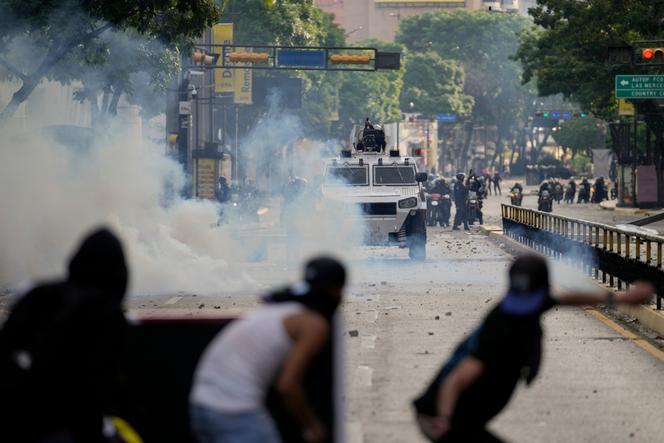


The report released by the United Nations on Tuesday, September 17 is unequivocal: Since Nicolas Maduro's re-election in Venezuela on July 28, the authorities have intensified their "conscious and deliberate [...] actions aimed at dismantling and demobilizing organized political opposition," triggering "the harshest and most violent mechanisms of its repressive apparatus."
This "state policy," the 21-page text states, "led to serious human rights violations and crimes, in what constituted one of the country's most acute crises in recent years." This includes the deaths of 25 people – 24 of whom were shot – during protests against the declaration of Maduro's victory over opposition candidate Edmundo Gonzalez.
More than seven weeks after the ballot, the electoral authorities have yet to present the voting records that could confirm the results as requested by the opposition and much of the international community.
The text, written by the Independent International Fact-Finding Mission on the Bolivarian Republic of Venezuela, analyzes the period between September 1, 2023 and August 31, 2024.
This mission was set up by the United Nations (UN) Human Rights Council in 2019. Its original purpose was to investigate human rights violations committed in the country since 2014 and in particular the role of the Bolivarian National Guard and its chain of command. However, the post-election crisis forced it to "redefine the focus of its investigations to account for the upsurge in serious human rights violations and crimes during this period."
By 2023, "the harshest repressive apparatus was dormant but not dismantled," explained Francisco Cox, one of the three members of the UN mission. "In the run-up to the election, it was reactivated for selective arrests, such as that of human rights defender Rocio San Miguel in February, which had a very strong impact on civil society," said the Chilean expert. "What we're seeing after the election are, in addition, mass and arbitrary arrests, including hundreds of children aged 15 to 17, or people who simply expressed their disagreement with the official election result."
Enforced disappearances, beatings with sticks or electric shocks, sexual violence and a disregard for the right to defense are occurring at "unprecedented" levels. Moreover, "the efforts of the authorities to uphold the appearance of legality, which were already minimal in previous periods, almost completely disappeared." The mission considers it has "reasonable grounds to believe" that some of these violations constitute "crimes against humanity, including the crime of persecution." The brutality of the repression is such, says the text, that it "continues to generate a widespread climate of fear among the population."
You have 30.83% of this article left to read. The rest is for subscribers only.
